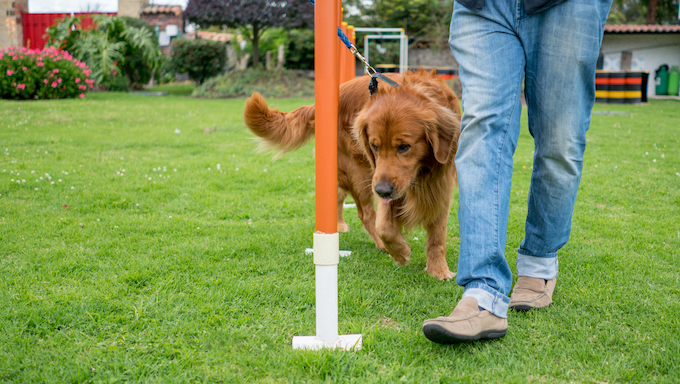
A well-trained dog is a happy dog, and a happy owner as well. But does how we train dogs matter? Some experts say yes, and are pushing for regulations for dog trainers.
A Need for Regulations
For years, experts have lauded the benefits of positive reinforcement: rewarding your dog for good behavior. And while methods that use punishment may help in particular cases, it’s generally not a good long-term strategy.
Bradley Phifer is the executive director of the Certification Council for Professional Dog Trainers, or CCPDT. Phifer spoke to Undark Magazine about the need for standards and licensure for dog trainers. “Anyone can identify as a dog trainer,” he says, “they can put up a social media page, they can offer services to the public, and there’s no expectations for their education, their continuing education, or their standards of practice.”
As a result, people with no understanding of animal behavior are giving advice on how to care for pets. Now, this could be nothing more than a minor inconvenience. When it comes to handling canine aggression, however, “… if you’re not adequately trained, or you don’t have adequate experience in the industry or in the content, then you shouldn’t be advising people on how to prevent dog bites,” says Phifer.
Currently, there are no standards to become a dog trainer. It is an unlicensed profession with no regulatory body. But that soon may change.
New Standards for Dog Trainers
CCPDT and the Association of Professional Dog Trainers (APDT), have created a joint umbrella group called the Alliance for Professionalism in Dog Training. The group has drafted model legislation that will create regulations for certifying dog trainers. Among the regulations proposed are a state board responsible for licensure, accountability standards, and continuing education requirements for trainers. As of now, the bill is making headway in New Jersey, California, and Illinois state legislatures.
Interestingly, however, the legislation has exposed differing mindsets in the dog training community. One rule proposed by ADPT states that certifying bodies need to prioritize positive reinforcement.
While studies argue that punishing dogs is less effective and more damaging to their well-being, some trainers think the data doesn’t reflect reality. According to some, positive punishment works in extenuating circumstances, and more studies are needed to recognize when and where to use it.
For the moment, experts do agree that the industry is overdue for change. While the specifics of what regulations should look like and how great their effects should be are up for debate, advocates argue that, at the very least, trainers need to be properly educated. Ultimately, the goal is to ensure that people who understand the science of animal behavior are the ones training dogs.









